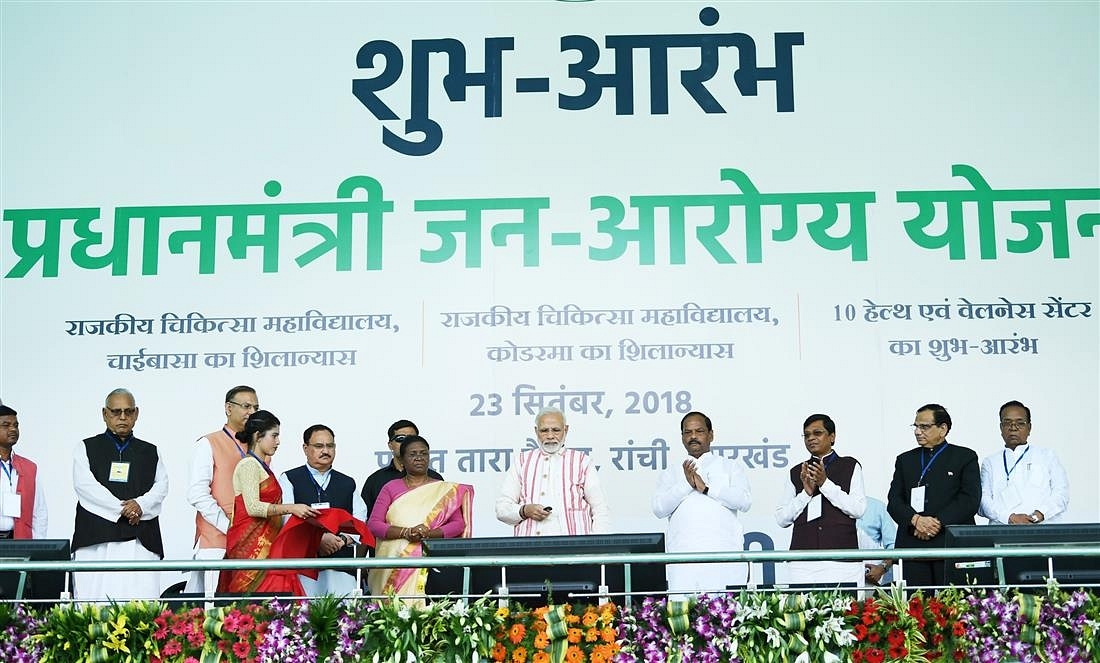Insta
Big Boost To Centre, Snub To Delhi Government: Several Major Hospitals In Capital Join Ayushman Bharat Scheme

PM Modi launching the ‘Ayushman Bharat’ scheme. (via www.pmindia.gov.in)
Centre's coveted Ayushman Bharat programme got a big endorsement on Thursday (28 March 2019) with the renowned 700-bed high-capacity multi-speciality Sir Ganga Ram Hospital from the national capital agreeing to joining the programme.
It signed a pact with the National Health Authority (NHA) and the agreement for empanelment was signed by NHA CEO Dr Indu Bhushan and additional director (medical) of the hospital Dr Satendra Katoch, reports Financial Express.
“We deeply value the ethos of Ayushman Bharat – Prime Minister Jan Arogya Yojana. Our hospital will contribute towards the vision of the Prime Minister to provide healthcare for all Indians,” said Dr D S Rana, Chairman (BOM), Sir Ganga Ram Hospital.
However, it must be noted that only non-Delhi residents will be able to benefit from the scheme as Delhi government is yet to pass the scheme for implementation in the city with it being at loggerheads with the Centre.
On similar lines, another major development took place with the North Delhi Municipal Corporation Standing Committee on Tuesday (26 March 2019) passing an order to implement the Ayushman Bharat programme across its hospitals, reports Indian Express.
Hospitals falling under the North body are Maharishi Valmiki Institute for Infectious Diseases, Bara Hindu Rao Hospital, Kasturba Gandhi Hospital, Girdhari Lal Hospital and Rajan Babu Institute of Pulmonary Medicine and Tuberculosis. However, here too, only non-Delhi residents will be able to benefit from the scheme.
The Ayushman Bharat – Pradhan Mantri Jan Arogya Yojana (AB-PMJAY) provides healthcare benefits worth Rs 500,000 to each eligible family per year in government and empanelled private hospitals. The Centre bears 60 per cent of the cost whereas the remaining 40 per cent is borne by the state.
Support Swarajya's 50 Ground Reports Project & Sponsor A Story
Every general election Swarajya does a 50 ground reports project.
Aimed only at serious readers and those who appreciate the nuances of political undercurrents, the project provides a sense of India's electoral landscape. As you know, these reports are produced after considerable investment of travel, time and effort on the ground.
This time too we've kicked off the project in style and have covered over 30 constituencies already. If you're someone who appreciates such work and have enjoyed our coverage please consider sponsoring a ground report for just Rs 2999 to Rs 19,999 - it goes a long way in helping us produce more quality reportage.
You can also back this project by becoming a subscriber for as little as Rs 999 - so do click on this links and choose a plan that suits you and back us.
Click below to contribute.
Latest